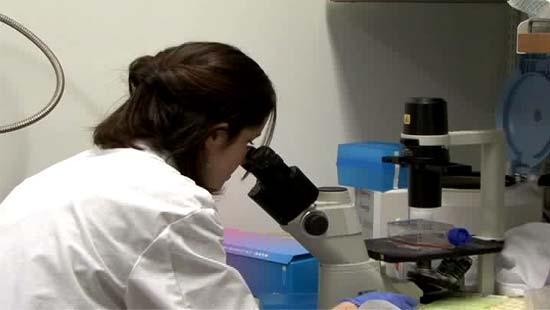HPV Infection Boosts Risk of Skin Cancers, Study Finds

Get the world’s most fascinating discoveries delivered straight to your inbox.
You are now subscribed
Your newsletter sign-up was successful
Want to add more newsletters?

Delivered Daily
Daily Newsletter
Sign up for the latest discoveries, groundbreaking research and fascinating breakthroughs that impact you and the wider world direct to your inbox.

Once a week
Life's Little Mysteries
Feed your curiosity with an exclusive mystery every week, solved with science and delivered direct to your inbox before it's seen anywhere else.

Once a week
How It Works
Sign up to our free science & technology newsletter for your weekly fix of fascinating articles, quick quizzes, amazing images, and more

Delivered daily
Space.com Newsletter
Breaking space news, the latest updates on rocket launches, skywatching events and more!

Once a month
Watch This Space
Sign up to our monthly entertainment newsletter to keep up with all our coverage of the latest sci-fi and space movies, tv shows, games and books.

Once a week
Night Sky This Week
Discover this week's must-see night sky events, moon phases, and stunning astrophotos. Sign up for our skywatching newsletter and explore the universe with us!
Join the club
Get full access to premium articles, exclusive features and a growing list of member rewards.
The human papillomavirus spurs the development of nonmelanoma skin cancers, a new study in mice shows.
It was previously suspected that the virus, also known as HPV, was involved in the occurrence of these skin cancers, but it was not clear whether it had a direct role, the researchers said. HPV has previously been shown to have roles in the development of cervical cancer, anal cancer and head and neck cancers.
The new study found that mice infected with a strain of the virus called HPV38 were more likely to develop squamous cell carcinoma, a type of skin cancer, when they were exposed to UV light than mice that weren't infected but were also exposed to UV light. (HPV38 is a different strain of the virus than the strains implicated in other cancers.)
The findings are "of paramount importance," because if the virus is shown to cause skin cancer in people, then vaccines could be developed to prevent skin cancer as they have been to prevent cervical cancer, said study researcher Dr. Lutz Gissman, head of the division of genome modifications and carcinogenesis at the German Cancer Research Center.
Researchers suspected that an infectious agent was involved in the cancer because previous studies had shown that patients whose immune systems are not fully functional were more likely to develop these skin cancers. For example, organ transplant recipients, whose immune systems are suppressed with drugs to avoid organ rejection, have a fiftyfold to hundredfold higher risk of developing these cancers than the general population.
Recipients of organ transplants and others with compromised immune systems could particularly benefit from a vaccine against the virus, the researchers said.
The incidence of these cancers is rising, due mainly to the increased aging population and increases in sun exposure, the researchers said.
Get the world’s most fascinating discoveries delivered straight to your inbox.
Most nonmelanoma skin cancers develop on parts of the body often exposed to sunlight, such as the face, neck and hands. These cancers rarely spread to other parts of the body, according to the American Cancer Society.
There were more than 1 million new cases of nonmelanoma skin cancers in the U.S. in 2010, but fewer than 1,000 deaths from the disease that year, according to the National Cancer Institute.
Researchers from the World Health Organization's collaborated with the German researchers. The study was published on July 14 in the journal PLoS Pathogens.
Pass it on: The human papillomavirus (HPV) stimulates the development of nonmelanoma skin cancers, a new study finds.
This story was provided by MyHealthNewsDaily, sister site to LiveScience. Follow MyHealthNewsDaily on Twitter @MyHealth_MHND
 Live Science Plus
Live Science Plus











